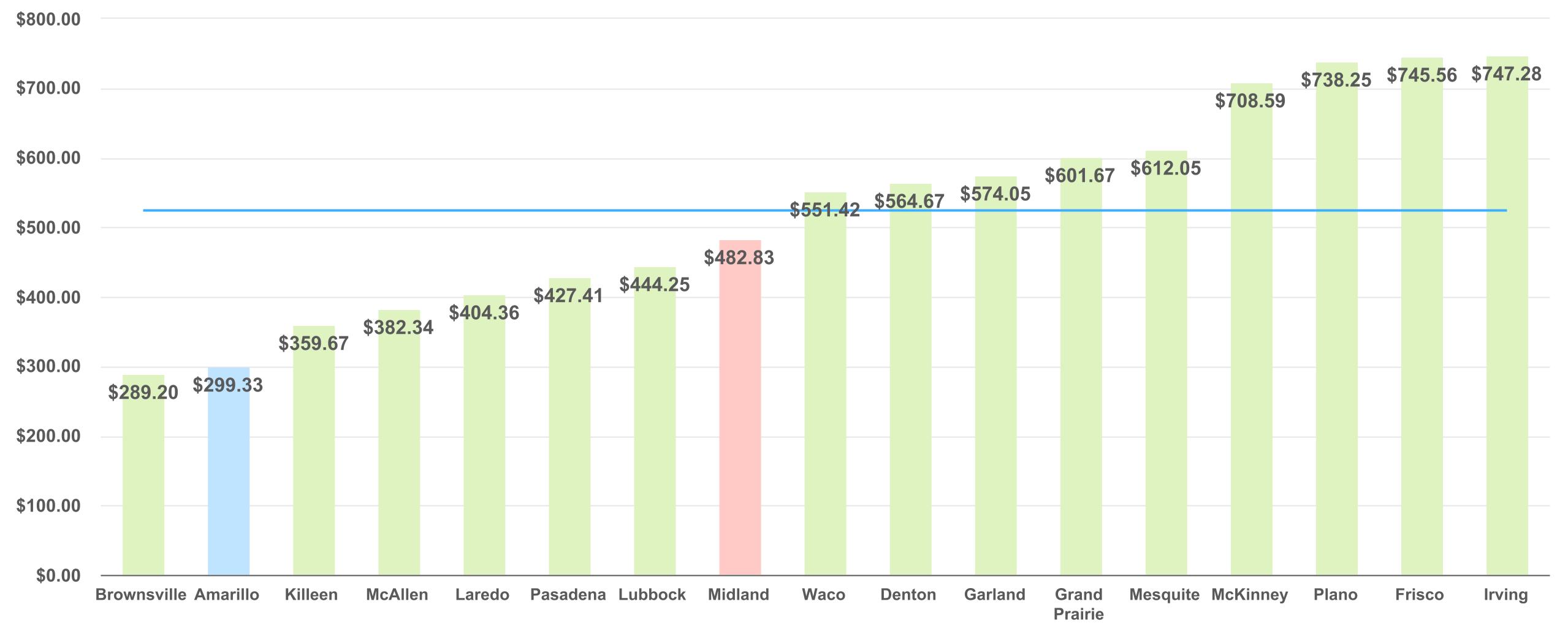City of Amarillo FY 2023/2024 Proposed Budget Property Tax
Presented to Amarillo City Council August 9, 2023


City of Amarillo FY 2023/2024 Proposed Budget Property Tax
Presented to Amarillo City Council August 9, 2023

• A property tax (or Ad Valorem) is a revenue based on the value of a property. This value is determined by the Potter-Randall Appraisal District (PRAD), which is an outside agency that acts independently of the City. Amarillo spans two counties, so PRAD determines property values in both counties, but not the tax rate.
• Homestead exemptions only apply to the school district portion of the property tax bill. The current exemption is $40,000 but will be increasing to $100,000. Homestead properties fall under the State of Texas’ 10% Appraised Tax Value Limit. This means the appraised tax value can only increase by 10% each year.
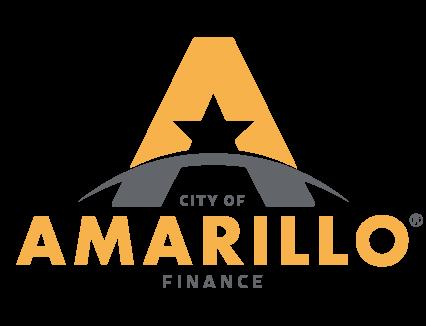
The City of Amarillo offers a couple of options to offer a tax break to its residents. For example:
• $8,600 Senior/Disability Exemption is available to citizens over 65 years old or those presently disabled. A citizen can only use one of these exemptions.
• Over-65/Disability Tax Freeze holds the total tax dollar amount once a citizen turns 65 or has a qualified disability . If you are a 65-year-old citizen or have a qualified disability and apply for this exemption, your total tax dollar amount will stay the same or potentially decrease, depending on property values and the adopted tax rate. A citizen will never pay more than the total frozen tax dollar amount unless an improvement is added to the property. Citizens can apply for this break with PRAD at any time during the year.

Property owners have the right to know about increases in their properties’ appraised value and to be notified of the estimated taxes that could result from the new value.
A taxing unit must publish special notices and hold one public hearing before adopting a tax rate.
A taxing unit must publish its no -new -revenue and voterapproval tax rates before adopting an actual tax rate.
If a taxing unit adopts a rate that exceeds the voterapproval rate, a mandatory election must be held in November.

• Effective 1/1/2020
• Renames the “rollback” tax rate to the “voter-approval” tax rate
• Provides for a voter-approval rate of 3.5% (versus previous rollback rate of 8%)
• Allows carry forward of any unused increment between the adopted M&O and voter-approval M&O for up to 3 years
• Requires mandatory election if adopted rate exceeds voterapproval rate
• Does not affect the levy of property taxes for debt service (I&S rate)
Sources: Texas Municipal League – Legislative Update

• Prohibits the adoption a budget or taking any other action that has the effect of decreasing the total compensation to which a first responder was entitled in the preceding fiscal year
• Makes numerous calendar changes to the property tax appraisal, collection, and rate -setting process in order to have property tax ratification elections on the November uniform election date
Sources: Texas Municipal League – Legislative Update

Operations and Maintenance (O&M)
è Ongoing
General Fund operations
Interest and Sinking (I&S)
è Payments on debt for general government improvements

• Essentially the tax rate the City would pass to collect the same tax revenue as last year (FY 2022/23) using this year’s (FY 2023/24) appraised values.
“…a tax rate that would produce the same amount of taxes if applied to the same properties taxed in both years. ”
• For FY 2023/24, the no-new-revenue tax rate is $0.37598 per $100 valuation or $0.02269 under the voter-approval tax rate of $0.39867.
Source: Texas Property Tax Code – Chapter 26




• While the O&M part of the calculation is capped at 3.5%, plus any unused increment from the past 3 years, the debt service portion of the overall rate may rise as high as necessary to cover debt expense in the coming year.
Provides a taxing unit with about the same amount of tax revenue it spent the previous year for dayto-day operations, plus an extra 3.5% increase
Source: Texas Property Tax Code – Chapter 26
• If the City approves a tax rate over the voter-approval tax rate, a mandatory election is required in November.
• For FY 2023/2024, the voter-approval tax rate is $0.39867 per $100 valuation.

• If the proposed tax rate exceeds the no-new -revenue tax rate but is below the voter -approval tax rate:
• Must provide notice to property owners and hold one public hearing.
• Notice must specify the proposed tax rate, the no-new-revenue tax rate, the voter-approval tax rate, the date and time of the public hearing, and the taxes imposed on an average residence homestead.
• Council may adopt the tax rate at the public hearing. If Council does not, then must announce the date and time of the vote on the tax rate.
Sources: Texas Property Tax Code – Chapter 26; Texas Local Government Code – Section 102

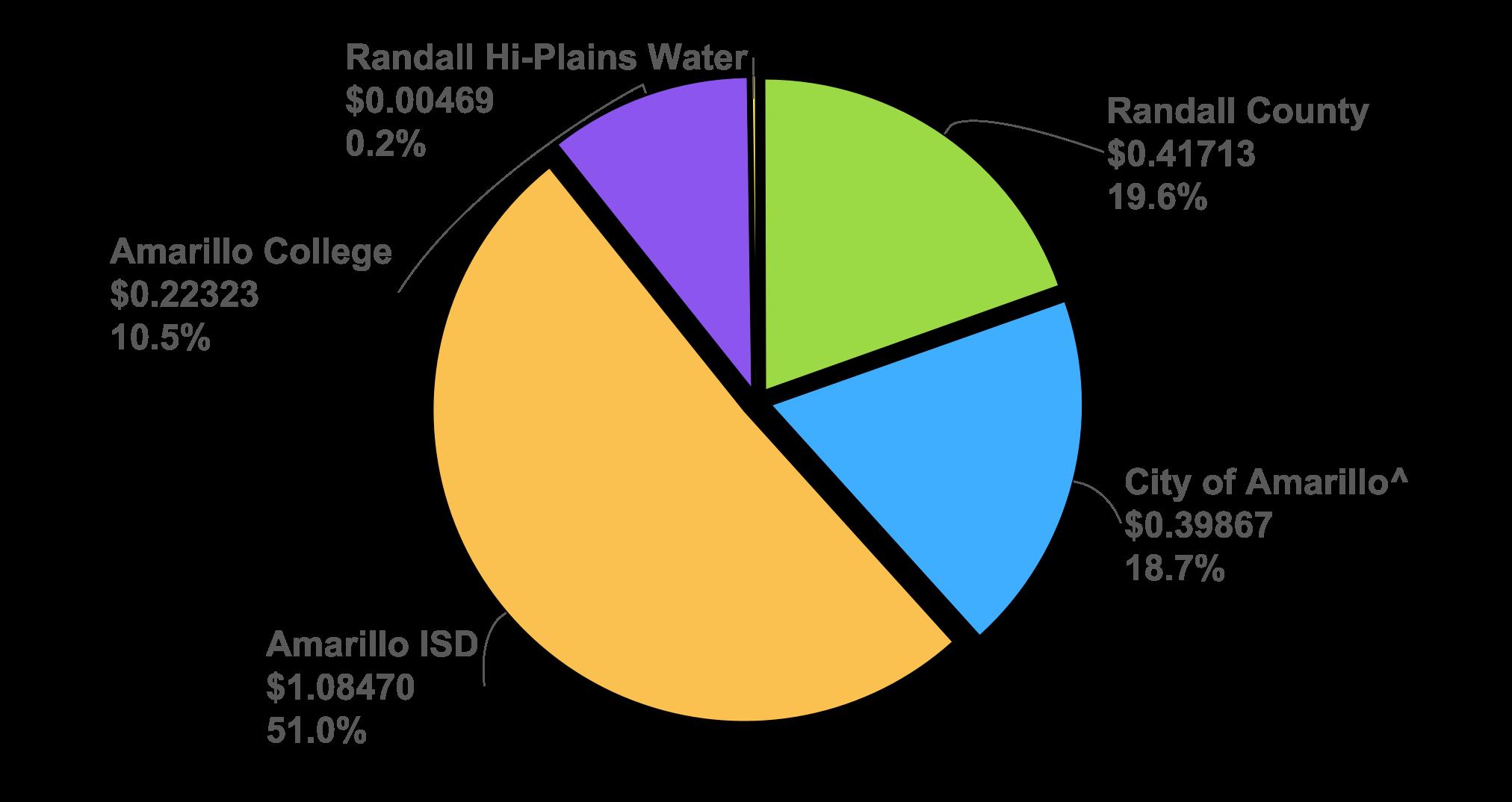



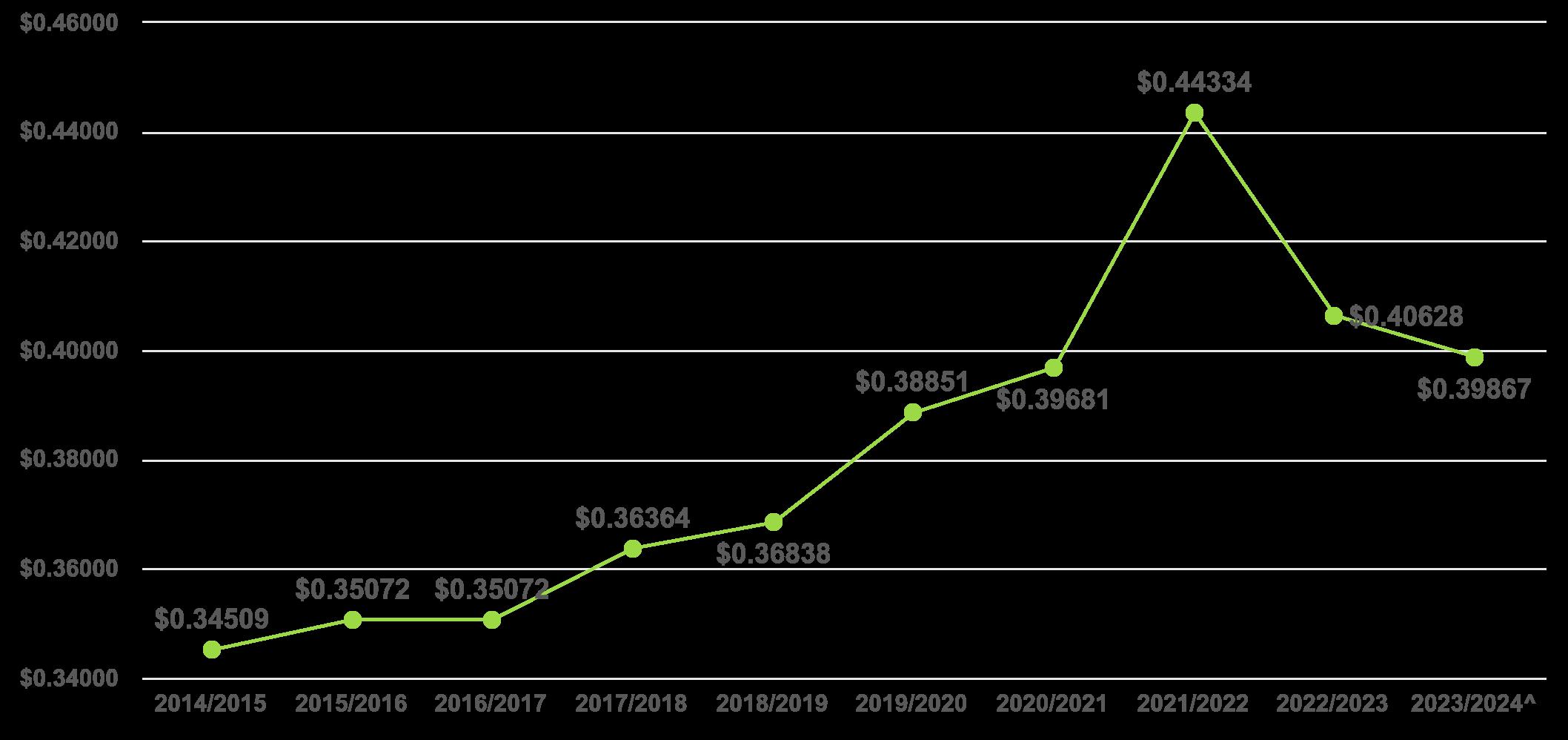

Ad Valorem Tax Rate History - per $100 Valuation - by component

^ Voter-approval tax rate

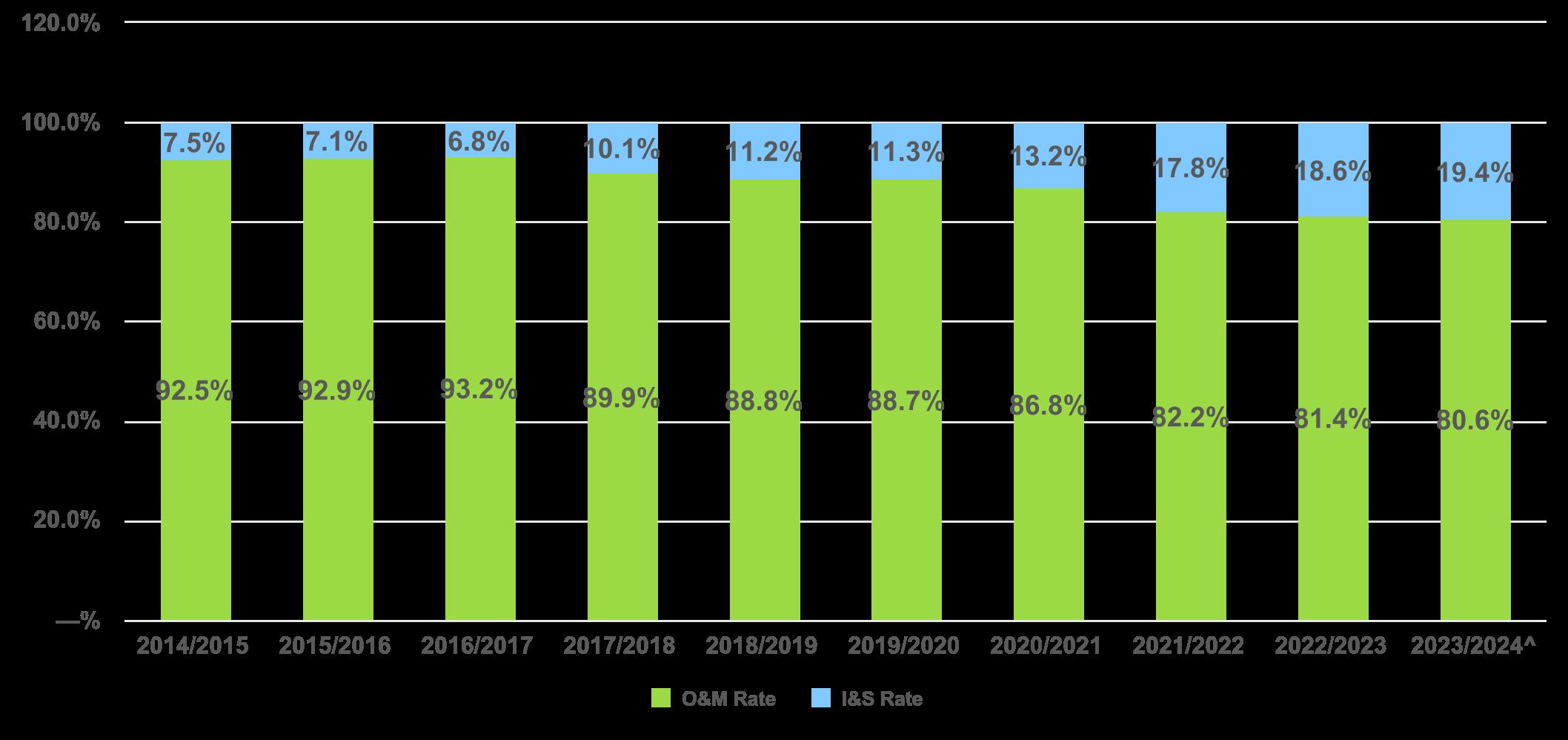



Through adoption by a taxing unit’s governing body or by petition and election by citizens, a city can offer a tax limitation on homesteads of taxpayers who are disabled or age 65 years or older. Once adopted, the Tax Code provides for the tax ceiling for disabled and age 65 or older homeowners and their right to transfer to another homestead in that taxing unit the same benefit of that tax ceiling.
$4,519,594
$0.029905

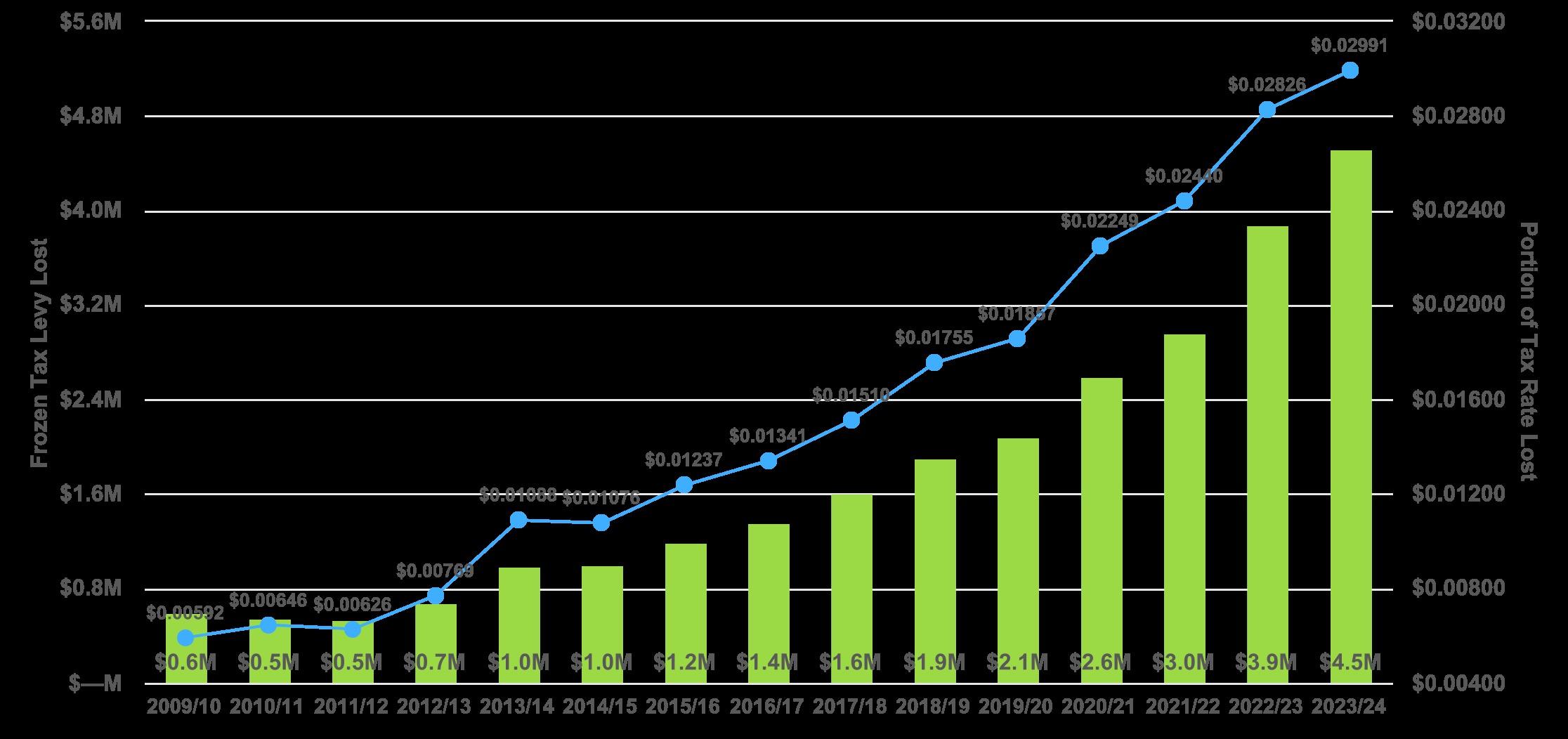

Average: $0.58171
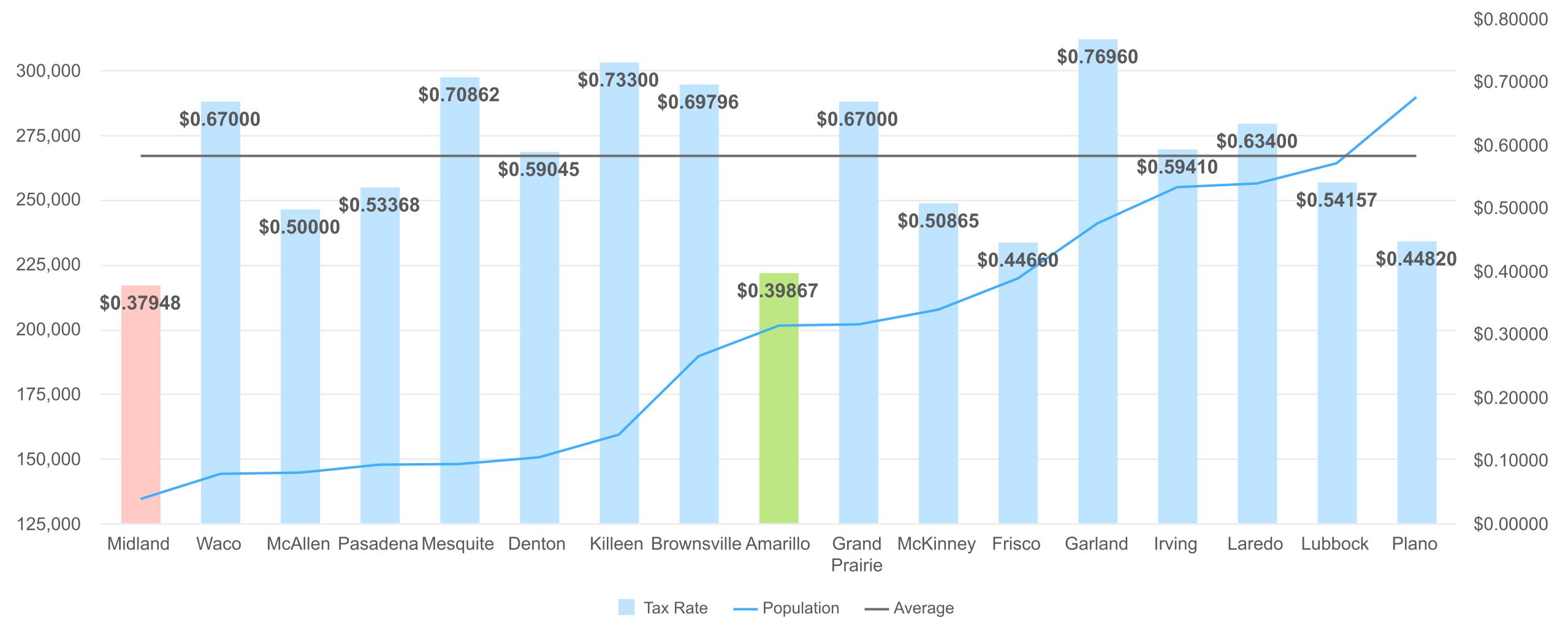
8 larger and 8 smaller cities by population
Source: Cities' 9/30/22 ACFRs & 22/23 Approved Budgets

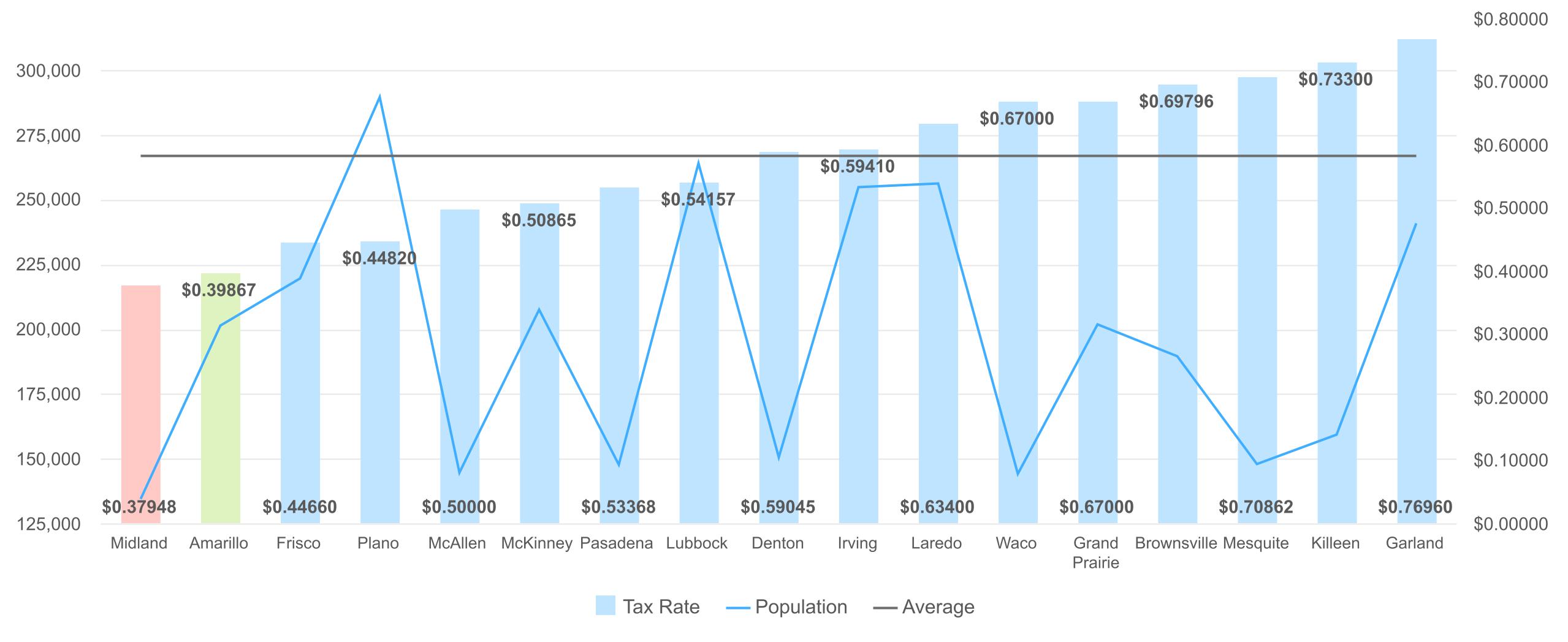
8 larger and 8 smaller cities by population
Average: $0.58171
Source: Cities' 9/30/22 ACFRs & 22/23 Approved Budgets

